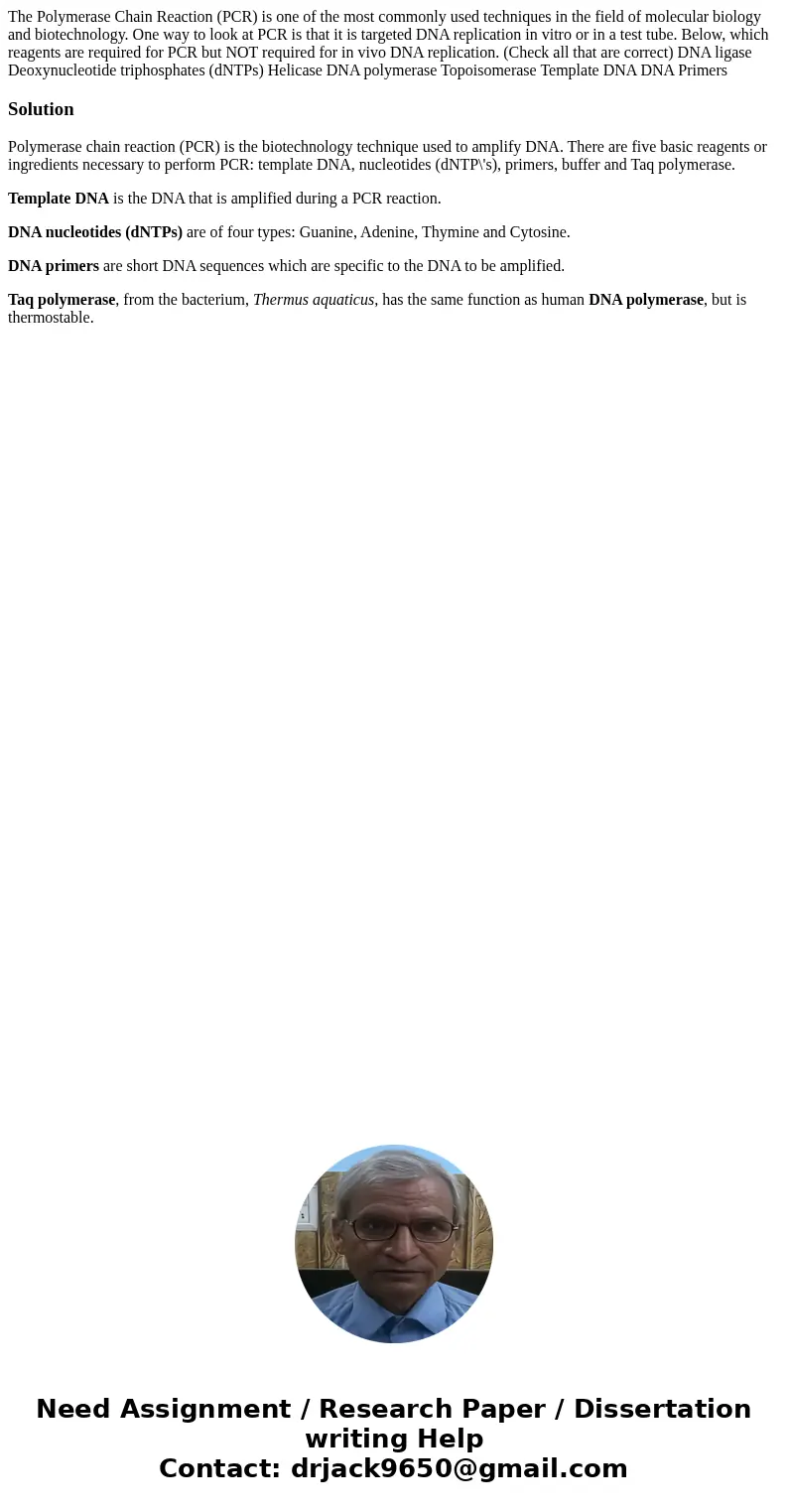The Polymerase Chain Reaction PCR is one of the most commonl
The Polymerase Chain Reaction (PCR) is one of the most commonly used techniques in the field of molecular biology and biotechnology. One way to look at PCR is that it is targeted DNA replication in vitro or in a test tube. Below, which reagents are required for PCR but NOT required for in vivo DNA replication. (Check all that are correct) DNA ligase Deoxynucleotide triphosphates (dNTPs) Helicase DNA polymerase Topoisomerase Template DNA DNA Primers
Solution
Polymerase chain reaction (PCR) is the biotechnology technique used to amplify DNA. There are five basic reagents or ingredients necessary to perform PCR: template DNA, nucleotides (dNTP\'s), primers, buffer and Taq polymerase.
Template DNA is the DNA that is amplified during a PCR reaction.
DNA nucleotides (dNTPs) are of four types: Guanine, Adenine, Thymine and Cytosine.
DNA primers are short DNA sequences which are specific to the DNA to be amplified.
Taq polymerase, from the bacterium, Thermus aquaticus, has the same function as human DNA polymerase, but is thermostable.

 Homework Sourse
Homework Sourse